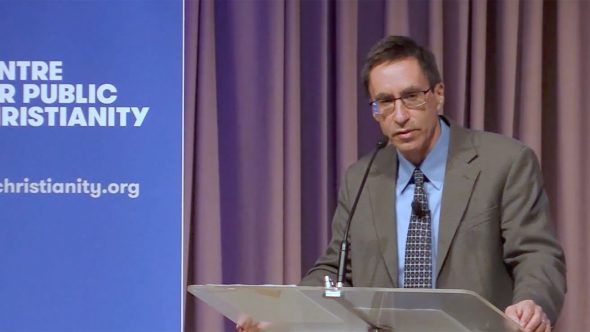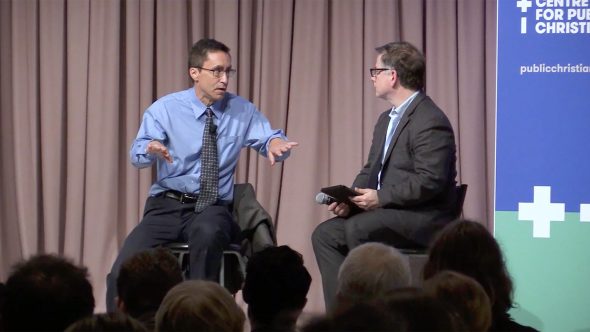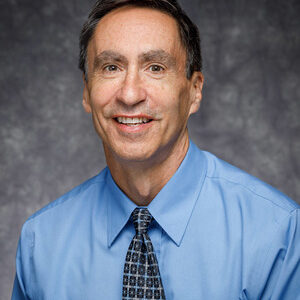William Cavanaugh delivers the 2016 Richard Johnson Lecture, on the widely-held assumption that religion causes violence.
It’s a widely held assumption in Western societies that religion has a peculiar tendency to promote violence.
Indeed, much of our domestic and foreign policy assumes this. Is it a fair assumption? Are religions more inclined to promote violence than things like nationalism and access to oil? What even counts as “religion”? And what role have “secular” ideologies as well as “religious” ones played in fomenting violence? American philosopher William Cavanaugh offers some provocative arguments.
William Cavanaugh delivers the 2016 Richard Johnson Lecture, on the widely-held assumption that religion causes violence.
William Cavanaugh responds to questions following the 2016 Richard Johnson Lecture.

William Cavanaugh delivers the 2016 Richard Johnson Lecture, on the widely-held assumption that religion causes violence.

William Cavanaugh responds to questions following the 2016 Richard Johnson Lecture.

William T. Cavanaugh is a Professor of Theology at DePaul University in Chicago. He holds degrees from Notre Dame, Cambridge, and Duke University, and has worked as a lay associate with the Holy Cross order in a poor area of Santiago, Chile, as well as for the Center for Civil and Human Rights at the Notre Dame Law School. His areas of specialisation include political theology and economic ethics. He is the author of several books, including The Myth of Religious Violence: Secular Ideology and the Roots of Modern Conflict (2009) and Field Hospital: The Church’s Engagement with a Wounded World (2016).
Re:CONSIDERING is a series from Acorn Press and the CPX team that invites you to look at what's familiar from an unfamiliar angle; to consider how we consider things, and how to do it better.
Now available - The Pleasures of Pessimism by Natasha Moore, The Cost of Compassion by Tim Costello, The End of Thinking? by Mark Stephens and Achievement Addiction by Justine Toh.
Want to keep up with the latest news and context from CPX?
We send out a fortnightly newsletter updating CPX friends and fans on what we've been up to. Very occasionally, we'll send you an extra email if there's something special happening. But we promise not to spam you.
The Richard Johnson Lecture is an activity of the Centre for Public Christianity. The lecture seeks to highlight Christianity's relevance to society and positively contribute to public discourse on key aspects of civil life. For more information and past lectures, click here.